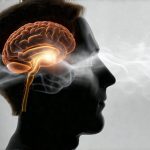The intricate relationship between our minds and bodies is increasingly recognized as fundamental to overall well-being. For decades, psychology focused primarily on cognitive processes, often treating the body as merely a vessel for the mind. However, emerging research in neuroscience and microbiome studies paints a dramatically different picture – one where the gut microbiome, the vast ecosystem of microorganisms residing within our digestive tract, plays a surprisingly significant role not only in physical health but also in emotional resilience and our ability to cope with stress. This isn’t about ‘thinking positive’; it’s about understanding how the tiny inhabitants of our gut can profoundly influence brain function and emotional regulation, shaping how we respond to life’s challenges.
Historically viewed as passive bystanders, bacteria within the gut are now understood to be active participants in a complex two-way communication system with the brain – often referred to as the gut-brain axis. This bidirectional pathway involves neural, hormonal, and immunological signaling, allowing the gut microbiome to directly and indirectly influence mood, anxiety levels, cognitive function, and even our stress response. The sheer number of microbial cells within us—outnumbering human cells by a considerable margin—underscores their potential impact. Understanding this intricate interplay is crucial for developing holistic approaches to mental wellness that go beyond traditional therapies and address the root causes of emotional vulnerability.
The Gut-Brain Axis: A Communication Superhighway
The gut-brain axis isn’t a single pathway, but rather an interconnected network facilitating constant communication between the gastrointestinal tract and the central nervous system. This communication happens through several key mechanisms. One primary route is the vagus nerve, a cranial nerve extending from the brainstem to the abdomen, acting as a direct neural link. Microbial metabolites – compounds produced by gut bacteria during digestion – can directly stimulate vagal neurons, sending signals to the brain. Another important pathway involves the endocrine system, specifically the hypothalamic-pituitary-adrenal (HPA) axis, which regulates our stress response. The gut microbiome influences HPA axis activity, impacting cortisol levels and ultimately affecting how we perceive and react to stressors.
Furthermore, the gut microbiome significantly impacts immune function. A large percentage of our immune cells reside in the gut, constantly interacting with microbial communities. Imbalances in the gut microbiome – known as dysbiosis – can trigger chronic inflammation, which has been linked to various mental health disorders including depression and anxiety. This inflammatory response isn’t just a physical phenomenon; it directly impacts brain function by altering neurotransmitter levels and impairing neuronal plasticity. Finally, the production of neurotransmitters themselves is influenced by gut bacteria. For example, serotonin, often called the “happy hormone,” has a significant portion produced in the gut, making microbiome composition vital for mood regulation. Understanding gut inflammation is essential when considering these connections.
The complexity of this axis highlights why ‘one-size-fits-all’ approaches to mental health are often ineffective. Individual differences in microbiome composition, diet, lifestyle, and genetics all contribute to unique gut-brain interactions. Recognizing this personalized nature is key to developing targeted interventions that support emotional resilience. It’s important to note that correlation does not equal causation; research continues to unravel the precise mechanisms underlying these relationships, but the evidence for a strong connection is mounting. The role of emotional reactions can also play a significant role in this process.
How Stress Impacts The Gut Microbiome
Stress isn’t merely a psychological experience—it has profound physiological effects on our bodies, including significant alterations to the gut microbiome. When we encounter stressors, the HPA axis activates, releasing cortisol and other stress hormones. While essential for short-term survival, chronic activation of the HPA axis can disrupt the delicate balance within the gut ecosystem. – Cortisol decreases microbial diversity – leading to a less resilient and adaptable microbiome. – Stress reduces intestinal blood flow – impacting nutrient absorption and potentially causing ‘leaky gut,’ where the intestinal barrier becomes compromised. – Altered gut motility – changes in the speed at which food moves through the digestive tract, further influencing microbial composition.
These changes can create a vicious cycle: stress disrupts the microbiome, leading to increased inflammation and impaired gut function, which then exacerbates feelings of anxiety and depression, furthering stress levels. The type of stressor also matters. Acute stressors (short-term) may have different effects than chronic stressors (long-term). Chronic, unmanaged stress is particularly damaging, as it consistently suppresses the immune system and alters microbiome composition, making individuals more vulnerable to both physical and mental health issues. Addressing stress and anxiety can be a key component of gut health management.
Restoring microbial balance through dietary changes, stress management techniques, and potentially targeted probiotic supplementation can help mitigate these effects and enhance resilience. Understanding this interplay between stress and the gut microbiome allows for proactive strategies to protect both our physical and emotional wellbeing. Considering gut movement is also important in maintaining a healthy digestive system.
The Role of Diet In Shaping Resilience
Diet is arguably one of the most powerful tools we have to influence the gut microbiome and, consequently, emotional resilience. What we eat directly feeds the microbes in our gut, determining which species thrive and which ones decline. – A diet rich in fiber – from fruits, vegetables, and whole grains – promotes the growth of beneficial bacteria that produce short-chain fatty acids (SCFAs). SCFAs have anti-inflammatory properties and play a crucial role in brain health. – Processed foods, refined sugars, and excessive saturated fats can negatively impact the microbiome, fostering the growth of harmful bacteria and contributing to inflammation.
Fermented foods – like yogurt, kefir, sauerkraut, and kimchi – are excellent sources of probiotics, introducing live beneficial bacteria into the gut. However, it’s important to remember that probiotic supplementation isn’t always a substitute for a healthy diet; the long-term benefits often depend on establishing a diverse microbiome through consistent dietary changes. Prebiotics – non-digestible fibers that feed existing beneficial bacteria – are equally important. Sources include onions, garlic, asparagus, and bananas.
Adopting an anti-inflammatory diet—one that prioritizes whole, unprocessed foods while minimizing processed ingredients, sugar, and unhealthy fats—is a powerful step towards supporting both gut health and emotional resilience. It’s not about deprivation; it’s about nourishing your body with the nutrients it needs to thrive. The role of the gut-brain axis is further impacted by dietary choices.
Probiotics & Prebiotics: Targeted Support
While diet forms the foundation of microbiome health, probiotic and prebiotic supplementation can offer targeted support in specific situations. Probiotics introduce live microorganisms directly into the gut, potentially restoring balance after antibiotic use or periods of stress. However, it’s crucial to select probiotics carefully, as different strains have different effects. – Research suggests certain strains may be more effective for anxiety and depression than others. – The effectiveness of probiotic supplementation varies significantly between individuals; what works for one person might not work for another.
Prebiotics, on the other hand, nourish existing beneficial bacteria within the gut, promoting their growth and activity. They are generally well-tolerated and can complement probiotic supplementation. It’s important to note that simply taking probiotics or prebiotics isn’t a quick fix; they are most effective when combined with a healthy diet and lifestyle. Furthermore, synbiotics – products combining both probiotics and prebiotics – may offer synergistic benefits.
Before starting any supplement regimen, it’s best to consult with a healthcare professional who can assess your individual needs and recommend appropriate strains and dosages. The emerging field of personalized microbiome analysis offers even more targeted approaches, identifying specific microbial imbalances and guiding the selection of tailored interventions. This is not about self-treating but rather utilizing available tools to support the natural processes within our bodies. Understanding fasting and refeeding can also contribute to digestive balance.


















